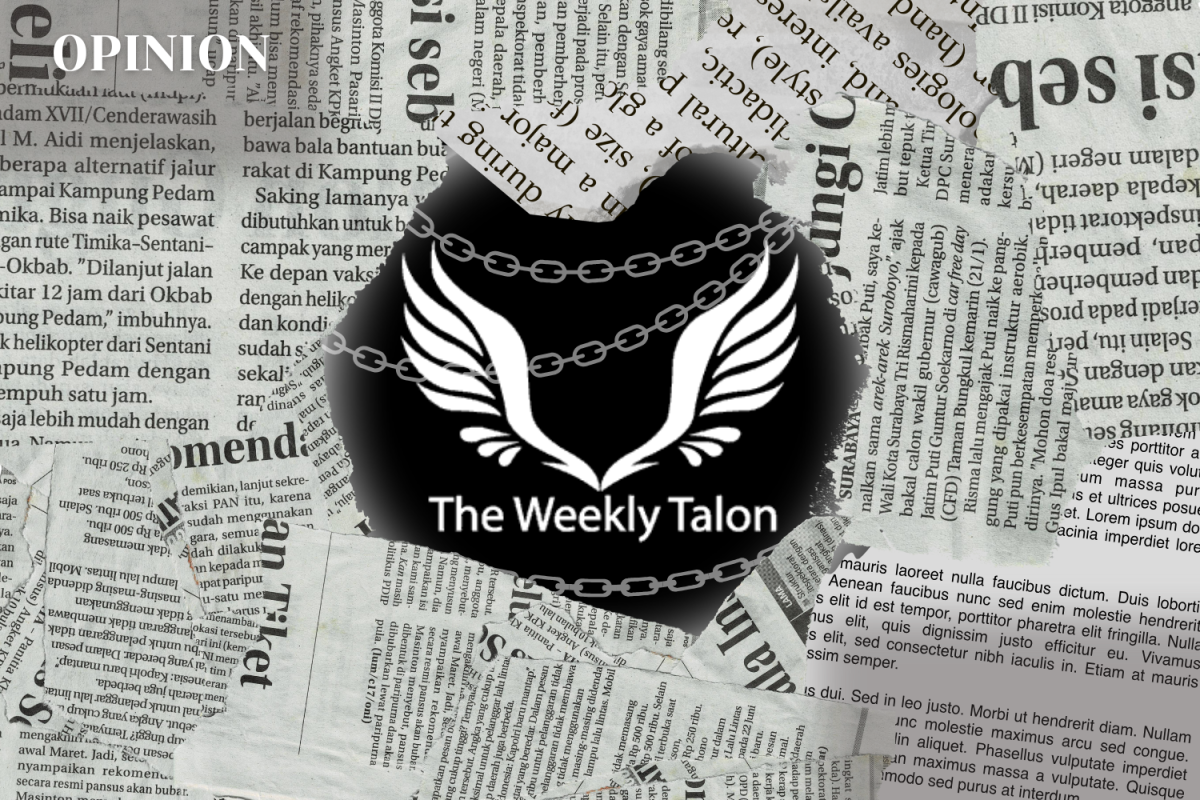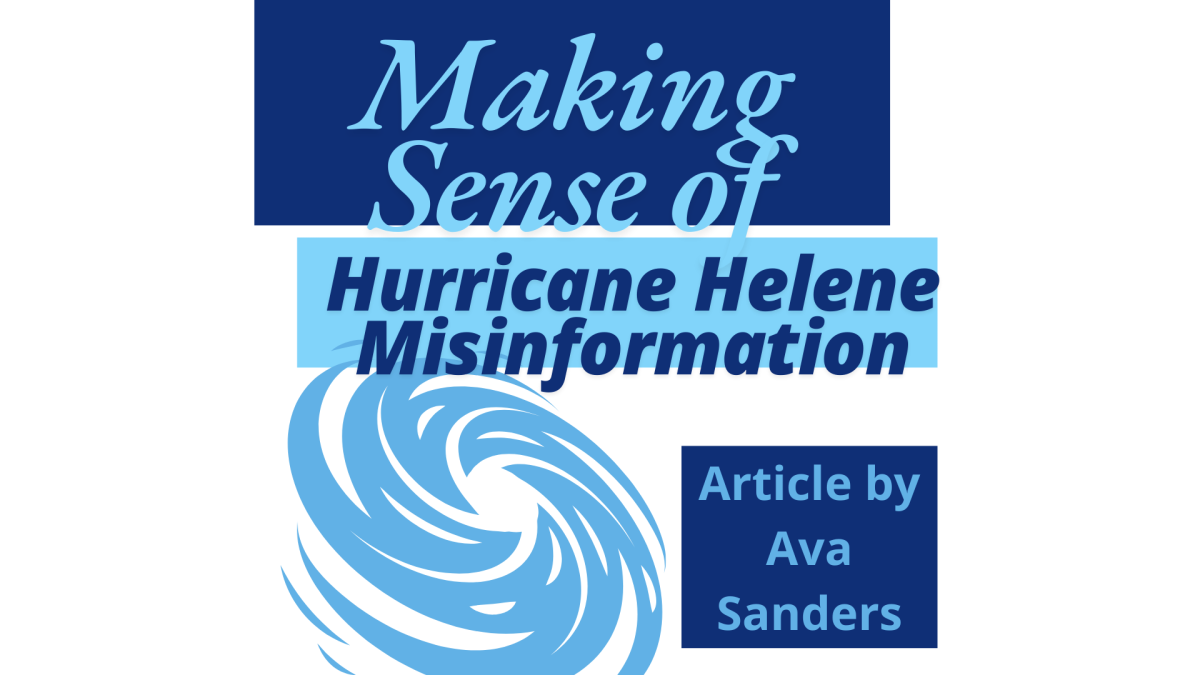Friday, January 10 has been declared a remote day for staff and students of Davie County Schools in anticipation of heavy snowfall. This marks the first time this school year that DCS has chosen to implement a remote day due to winter weather with previous closures being declared “snow days.” The first of these occurred on Tuesday, December 3, as Davie High students and staff awoke to a wintry surprise: the first snowfall in years. This unexpected inclement weather brought not only a fresh dusting of snow but also ice and frigid temperatures that caused hazardous road conditions. Multiple accidents and road closures resulted, creating significant challenges for those hoping to venture into the winter weather.
The decision to make today’s classes online—with both staff and students working from home—is unsurprising, but that same ability to work remotely was not given to DCS staff for either of the previous two snow days implemented this semester. Instead, staff were required to come to campus on what became optional teacher workdays to be considered present. This despite earlier communication specifying they had the ability to work remotely and the fact that many staff had already been working by the time a decision from Central Office compelled many to brave the weather to avoid taking a day without pay.
As teachers across the county found themselves caught between their job responsibilities and personal safety, a difficult question arose: Did the county make the right choice in deciding to not allow remote work?
Remote Work in Davie County Schools
Because of the potential dangers from the accumulated snow and ice, Davie County Schools declared December 3 a snow day for students, meaning no virtual work or in-person attendance was required. While students were enjoying their free time off, though, the day presented different expectations for staff members who were told to follow the district’s inclement weather Plan B: an optional teacher workday.
For school-based staff members like teachers, this plan provides the options of going to work, staying home and taking annual leave, or making up missed time at a later date. Notably missing from this description, though, is the option to work remotely.
Though remote work is not one of the options traditionally offered under Plan B, there have been opportunities for remote work in the past. Much to the surprise and relief of Davie High teachers, an email sent to staff at 6:39 a.m. from Pamela Schapp, DCHS’s Financial Bookkeeper, confirmed that remote work would be an option for them. As a result, staff members had the chance to complete tasks and get paid without using leave or venturing out into potentially dangerous conditions.
This arrangement was short-lived, however, as a second email sent by Schapp three hours later at 9:07 a.m. informed staff that DCS Superintendent Jeff Wallace had decided against this choice. An email from DCHS Principal Michael Pruitt reaffirmed this decision, informing employees “Your options are to work (at school), take leave, or use trade time.” The principal also emphasized the importance of protecting everyone’s safety, telling DHS staff not to put their lives at risk when traveling if they felt uncertain about the wintry conditions.
An Unexpected Scramble
Following the original snow day communication where remote work was presented as an option, several teachers had already begun planning their productive day at home. However, when the sudden change in plans was announced later that morning, teachers were left scrambling to make arrangements.
For science teacher Jeffrey McCandless, and several other teachers with children, the reversal of the remote work decision created an issue with child care.
“At home, I have resources and routines in place where keeping my children is relatively easy,” McCandless explained. “At work, I do not have those aids. I was able to do my job with my children in my classroom, but it was at a net loss of focus versus at home.”
The requirement of going into the school building also led to issues with the still dangerous road conditions. Though the majority of roads in Davie County were clear by mid-morning, black ice was still an issue in surrounding areas. History teacher Zach Wood, who lives in Forsyth County, experienced firsthand the hazardous roads on his commute.
“Roads were still quite bad for quite a few of us as we were traveling to work,” Wood noted. “I know I hit black ice a few times on the way to work, and this was even when they said it was safe to come in.”
A third issue with the removal of remote work was the timeline of communication for the decision. When procedure modifications are made in events like snow days, early communication is vital to ensuring all district staff, students, and their families are adequately informed of and prepared for the changes. According to the Davie County Schools website, the district does its best to make announcements for inclement weather changes by 6:00 a.m., or even as early as the day before whenever possible.
According to McCandless, the original email informing students and staff of the school cancellation was sent at 5:10 a.m., meeting the standard for communication. Schapp’s emails to DCHS staff offering the option of remote work were also sent at expected times before 7:00 a.m..
After learning of the snow day, many teachers had already started their days. “I was well on my way with my workday before the 6:50 email arrived,” said McCandless. This scenario also applied to Wood who took advantage of what he thought would be a nice day at home by enjoying a “little lazy morning breakfast” before moving on to planning lessons, grading assignments, creating tests, and other tasks.
When Schapp’s email notifying staff of Wallace’s decision to not allow remote work was sent at 9:07 a.m., the unexpected change disrupted the plans of teachers like McCandless and Wood who had already started working, causing confusion and an interruption of productivity.
The District’s Response
Amidst this confusion, many teachers wondered what the district’s reasoning was behind this decision. When reached for comment, Superintendent Jeff Wallace cited the district’s commitment to making equitable decisions for all staff as the primary rationale behind this decision.
“While remote work may be suitable for some roles, it is not universally applicable to all employees,” Wallace said. “Our decisions must be equitable and considerate of the broader group. As such, district-wide procedures are designed to address the diverse needs of our staff and their responsibilities.”
Wallace also emphasized the district’s dedication to safety. “The safety and well-being of our staff and students are our top priorities in every decision we make,” the superintendent explained.
Wallace’s response highlights the challenge of balancing staff flexibility with the needs of the broader district. While some staff members, like teachers, could benefit from remote work, others, like custodial staff, would not be able to do so. In this context, Wallace’s decision reflects an effort to provide fair opportunities to all Davie County staff regardless of their specific job responsibilities.
Teachers, when asked why they thought the county made the decision it did, responded with many possible reasons. One reason that the county might have rescinded the remote work option is because of the issues with monitoring staff in person versus online. If staff members are working onsite, administrators can supervise teachers in person to ensure accountability.
Supervising staff can become an issue when employees are not present in person and work from home using different methods. The infrastructure for remote work in DCS can allow some teachers to take advantage of the freedom remote work brings, making this a likely factor in the county’s decision not to allow remote work. Interestingly, the lack of supervision and accountability when working remotely is a concern for employers in other industries as well. According to CNBC, “The biggest disadvantage of remote work that employers cite is how difficult it is to observe and monitor employees.” However, McCandless argues that online supervision methods can prove to be more effective.
“Unless someone is in my room watching me work, it is probably easier to monitor my work output digitally with modern technology,” McCandless says. “If some staff have been found to be less productive virtually, make that staff come in. I would prefer a targeted approach versus a broad brush.”
Wood also affirmed this reasoning. “I think part of the problem is you have people that are doing their job, but perhaps there are people that aren’t, and I think that that’s where punishments come into play. Don’t punish the ones of us that are doing our job compared to those that are not. Punish them and let those of us who can work from home work from home if we can get our job done,” he argued.
Although some staff members may abuse the freedom of remote work, some teachers argue that specifically targeting those people might be a better approach to the supervision issue. Remote work is a viable option for staff members who use it appropriately, but by removing the option for all staff members, the county neglected to consider the diverse needs of all staff.
Fairness, Equity, and Tradition
DCS may have also removed the option for remote work because the subject raises issues about fairness. Although teachers in the school system can work remotely, other positions—such as the janitorial staff—are unable to. As shown by Wallace’s response, the district did consider this when making the decision to not allow remote work; if employees in all positions can’t work remotely, then why should some have the option to? In Wallace’s comment, he stated that DCS procedures are “designed to address the diverse needs of our staff and their responsibilities.” However, teachers argue that by allowing remote work the county is supporting the diverse needs of staff in a better way. Wood argues that meeting the diverse needs of staff means meeting everyone’s comfort.
“If people were comfortable coming in, then allow those that want to come in to come in,” Wood said. “However, if across the county, people felt safer working from home, then let them work remotely. You should be able to trust your teachers and staff to do the job that is assigned to them.”
Wood also felt like the county was inconsiderate of the needs of teachers who live outside of Davie County. Wood lives in Forsyth County where black ice was still on the roads near his home, making it difficult for him to work in person. His needs were not met by the county’s decision to not allow remote work.
“Sometimes I think that the thought process does not go into that fact, considering the employees, truthfully, that live outside of the county, I being one of those.”
Additionally, although some employees are unable to work remotely due to the nature of their unique roles, other staff members are not responsible for them. As McCandless said, “Most staff are not in that situation, and are not responsible for the situation in the former group.” Although it may seem unfair that some positions can work remotely and others cannot, it ultimately meets the diverse needs of teachers better than the removal of remote work for all positions.
The final possible reason that remote work was removed as an option is because of tradition. Up until the COVID-19 pandemic in 2020, remote working was typically an abstract concept and most jobs required employees to work in person. DCS didn’t adopt remote work until the pandemic, and many saw it as a temporary fix to prevent the spread of disease. The county might have removed the remote work option on the Snow Day simply because it isn’t a traditional form of work. However, McCandless argues that just because remote work hasn’t always been an option doesn’t mean it should stay that way. “Times change, technology changes,” McCandless argued. “Our profession is one of constant change and adjustment.”
The Future of Remote Work
Looking ahead, the future of remote work in Davie County Schools remains uncertain, especially as no official policy changes regarding the topic have been announced. As the remote work conversation continues, staff argue that the district’s administrators can best support them by fostering open and honest communication. Listening to staff about their unique circumstances and concerns, such as issues with child care or hazardous road conditions, will help to ensure that decisions are well-informed and empathetic to their needs. While technology and work practices continue to evolve, Davie County has an opportunity to create a more adaptable and responsive approach to remote work while also maintaining fairness and support for all employees. As McCandless emphasized, “If education is to improve in Davie County, then allowing remote work on days with hazardous conditions is a step in the right direction.”






























































